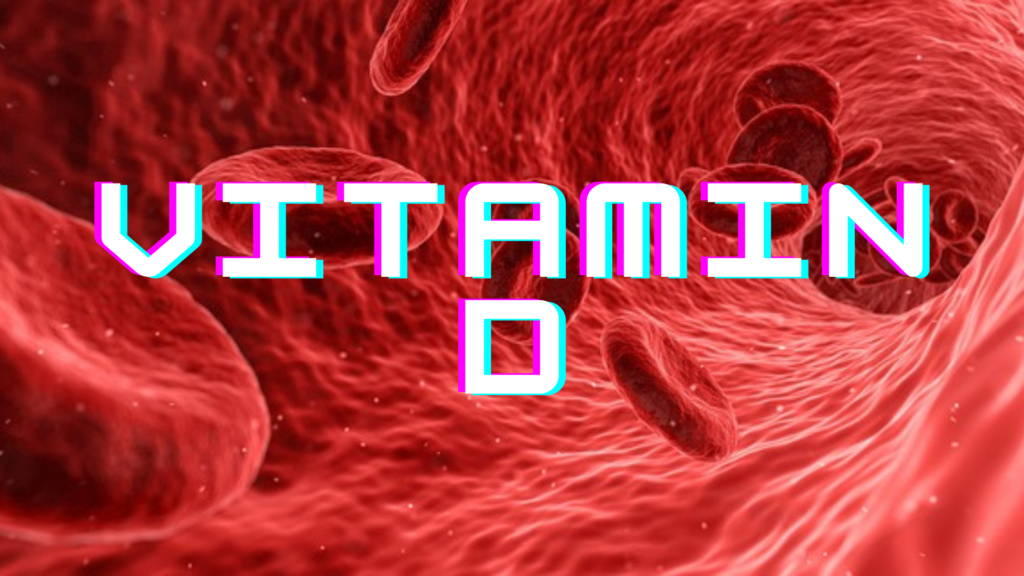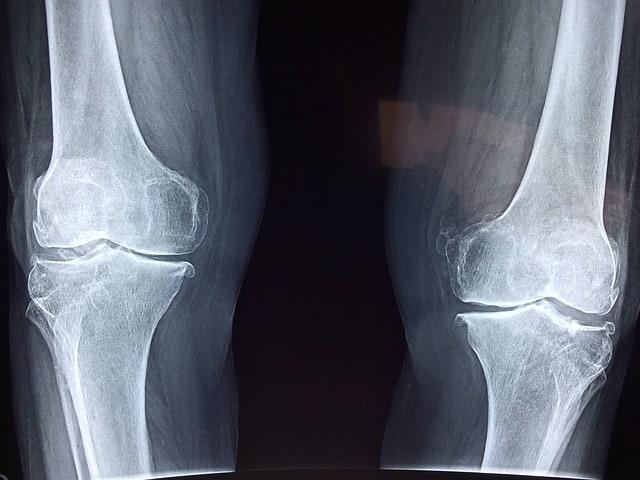14 signs of vitamin D deficiency

Over 40% of American adults and approximately 1 billion people worldwide are vitamin D deficient.
Why is this? Because very few foods contain vitamin D, most of it is actually produced in your skin in response to UV rays from the Sun, which is why it’s sometimes called the sunshine vitamin. Vitamin D is an extremely important nutrient that has powerful effects throughout the body, but despite its importance, many people just don’t seem to get adequate amounts.
Another cause for vitamin D deficiency is that, if you’re unsure if you’re receiving enough, it can be challenging to determine whether certain symptoms are genuinely brought on by low vitamin D levels or something else.
That is where this list comes in. You can check to see if you have any of the symptoms here and if you have one severely or several together, you might want to consider supplementing with vitamin D.
Number One: Aching Muscles
If you’re experiencing muscle pain that is not from exertion, it may be caused by low levels of vitamin D. In fact, research has shown that chronic muscle pain that is resistant to treatment is frequently caused by vitamin D deficiency. Vitamin D plays an important role in the support of muscle function when metabolized vitamin D enters your muscles and ensures proper muscle contraction this is also vital for building muscle strength.
Number Two: Fatigue
This symptom is frequently ignored because we tend to attribute fatigue to a variety of different causes. According to biology, your body needs vitamin D to produce energy, and a deficiency in this vitamin can leave you feeling tired and lethargic all day. This lack of energy can also lead you to engage in harmful habits that could be harmful to your health such as self medicating with powerful stimulants.
Get the free ebook to eliminate fatigue forever.
Number Three: Bone Pain

Once you reached maturity, your bones stopped growing, but new bone tissue is constantly replacing old bone tissue. Vitamin D is essential for this process, and a lack can lead bones to weaken. This disorder, also known as adult rickets or osteomalacia, can cause osteoporosis.
Aching bones, on the other hand, are frequently experienced as a piercing and widely dispersed ache, so it’s crucial to know how to tell them apart.
Muscle pain is typically focused in one particular region and is made worse by physical activity.
Number Four: Sweating Forehead
When your body temperature rises above 98.6 degrees Fahrenheit or 37 degrees Celsius, you start to perspire to cool down. This is typically completely normal, and sweating also helps to get rid of toxins that build up in fat cells beneath the skin. However, if only your head is perspiring, the rest of your body may not be getting enough vitamin D.
Number Five: Reduced Endurance
Low levels of vitamin D may be to blame if you are physically active yet find that your endurance is waning for no obvious reason. As I indicated in the previous point, vitamin D is essential for preserving and boosting energy, and this is especially true for endurance. Even if they receive enough sunshine each day, physically active persons might still have decreased endurance. Fortunately, if this vitamin is the cause, your endurance will rapidly return to normal once your levels are restored.
Number Six: Low Moods
Vitamin D has an impact on your mood as well as the health of your brain since it has vitamin D receptors in regions of the brain linked to mood. While study is ongoing, it is known that low vitamin D levels can have a substantial impact on your brain cells. Evidence also suggests that vitamin D may enhance mono amine neurotransmitters, which are feel-good chemicals like serotonin and dopamine. Lack of these chemicals in the brain can make you feel down and even sad. Seasonal affective disorder, which is at least partially brought on by the winter’s relative lack of sunlight, is another reason why many individuals have poor moods.
Number Seven: Problems Sleeping
Well, it’s been found that vitamin D also affects how well you sleep at night. The precise relationship between sleep and vitamin D is still unknown, but research suggests a connection between vitamin D levels and sleep quality. This connection may be due to the fact that inadequate vitamin D levels make the brain’s lead receptors function less effectively than they should, which can result in poor sleep quality.
Number Eight: Hair Loss
It is normal to lose hair as you age, but people can also experience hair loss due to a vitamin D deficit, and this is especially true for women. Vitamin D stimulates hair follicle growth when they are healthy, and when they retain hair volume. Additionally, studies point to a link between low vitamin D levels and alopecia, an autoimmune condition that causes bald patches.
Number Nine: Slow Healing
If you sustain an injury and it takes a long time for it to heal, a deficiency in vitamin D in your body may be to blame. Vitamin D is essential for the rebuilding of skin, so if you don’t get enough, healing will proceed much more slowly. This can be problematic after surgery and may also lead to more obvious scarring.
Number Ten: Loss of Balance

Vitamin D is crucial for the health of your ears. Studies have shown that the inner ear contains calcium channel transport systems and vitamin D receptors that are responsible for maintaining a healthy calcium balance. If calcium crystals in your inner ear become dislodged, you may suddenly experience nausea, dizziness, or a spinning sensation, among other unpleasant symptoms. There is strong evidence that the illness known as benign paroxysmal positional vertigo is related to low vitamin D levels.
Number Eleven: Issues With The Heart
One of the most underrated cardiovascular disease risk factors is vitamin D deficiency, but growing evidence suggests that it can sharply raise the chance of developing the condition. High blood pressure also appears to be related, according to a number of significant research papers. The chance of suffering a stroke, heart attack, or other cardiac issues might be doubled when vitamin D levels are inadequate.
Number Twelve: Weight Gain
It is thought that vitamin D enhances your body’s capacity to absorb vital elements like calcium, which is necessary for a healthy metabolism and helps you burn calories. According to research, obesity increases the body’s requirement for the vitamin because it contains higher levels of fat tissue. In addition, people with larger waistlines have trouble converting vitamin D into a more usable form, so they may require up to three times as much as people of average weight to maintain healthy levels.
Number Thirteen: Susceptible to Infections
The amount of vitamin D in your body directly affects how well your immune system functions. When your body can process enough of it, your immune system is strong and able to fight off infections and diseases as it should. If you don’t get enough of this essential vitamin, it can seriously compromise your immune system, making you susceptible to recurrent infections and chronic diseases.
Number Fourteen: Impaired Cognitive Function

It has been demonstrated that vitamin D’s physiologically active form has neuroprotective benefits, which indicates that the vitamin really aids in the maintenance of nerve function, which is crucial for your brain’s healthy operation.
In fact, there are clear indications that low levels of vitamin D are linked to dementia and Alzheimer’s, and adults with severe vitamin D deficiencies are four times more likely to experience impaired cognitive function.
Research strongly suggests that a deficiency of this vitamin is a significant factor in decreased cognitive ability.
Conclusion
Although vitamin D deficiency is a problem that affects people all over the world, there are some things that can make your chances of having low levels even higher. For example, since the body makes vitamin D when it is exposed to sunlight, you run the risk of having low levels if you spend too much time indoors, whether at home or at work, live in an extremely northern or southern latitude, or wear clothing that is overly concealing.
The good news is that a vitamin D deficiency is typically simple to remedy. You may expose yourself to sunshine more frequently, include more foods rich in vitamin D in your diet, including fatty fish or fortified foods like cereal, or just take a pill. This can work wonders for your health.